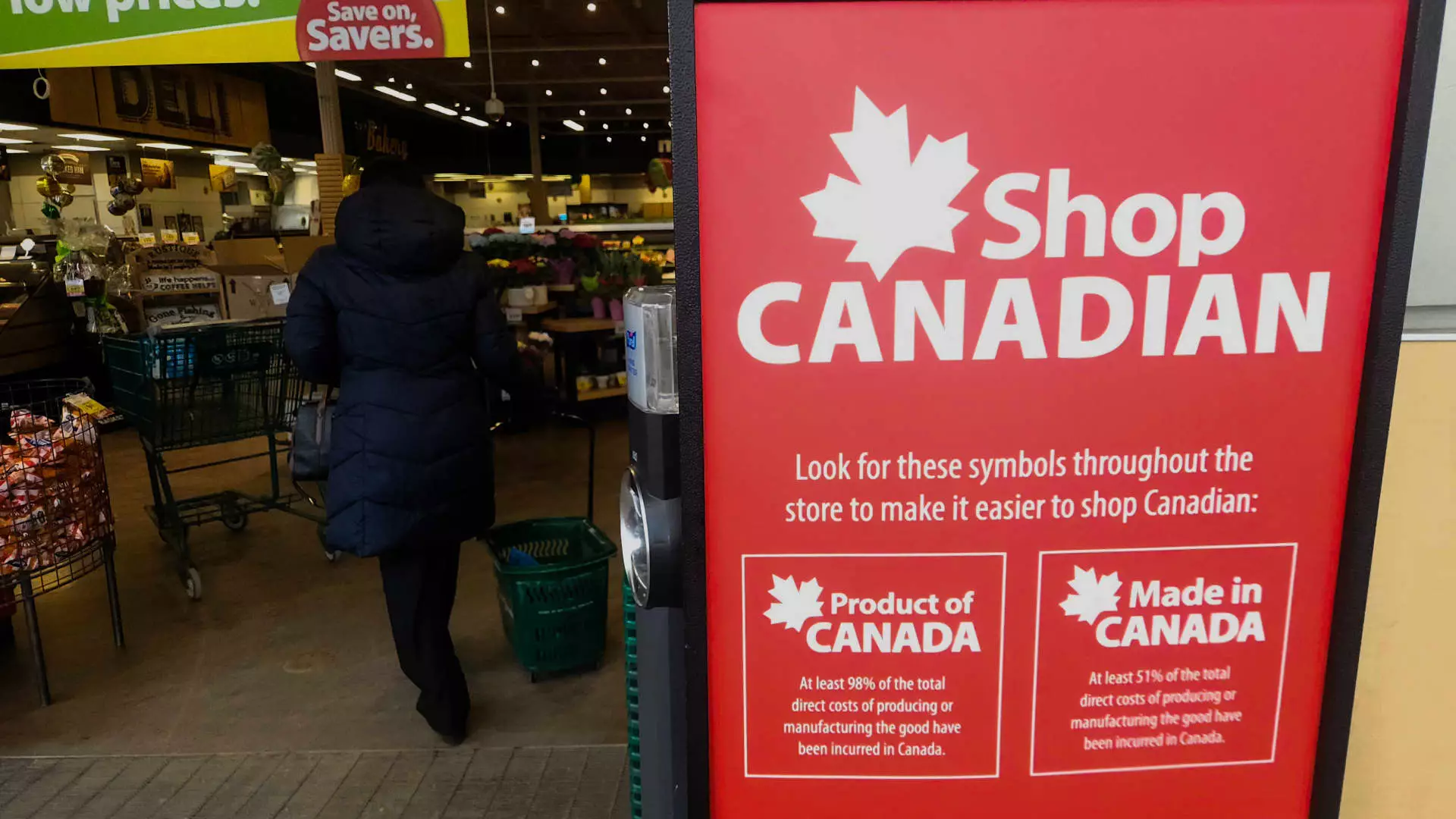The recent imposition of tariffs by the Trump administration, particularly on Canadian imports, paints a troubling picture for the future of U.S.-Canada trade relations. At first glance, it may seem politically expedient to safeguard American industries, particularly manufacturing. However, the reality is deeply entwined with economic principles and human emotions, leading to an irrefutable sentiment that these tariffs have more far-reaching consequences than the administration may have anticipated.
When President Trump announced these tariffs, he framed them as necessary to protect American jobs and bolster the domestic economy. What he failed to recognize is that this kind of unilateral action, particularly against a close ally like Canada, is often perceived as a betrayal rather than a protection. For over a century, the economies of the U.S. and Canada have been inextricably linked, and turning a blind eye towards this historical collaboration threatens the fabric of economic interdependence.
The Bonds of Trade: A Turbulent Break
As the economic ties between the two nations fray, we see significant backlash manifesting in the form of consumer sentiment and business strategies. Small businesses, a crucial pillar of both economies, find themselves caught in a maelstrom of rising costs and unpredictability. Particularly for Canadian businesses, the tariffs have been tantamount to emotional distress. The Canadian Federation of Independent Business (CFIB) indicates that nearly half of its members engage in trans-border trade—meaning the stakes are incredibly high for the economies on both sides.
At a grassroots level, small businesses such as Balzac’s Coffee Roasters are responding creatively to these tensions. The quaint Canadian cafe chain has transformed its marketing strategy by rebranding its iconic Americano to “Canadiano,” making a political statement through its menu. This kind of strategic repositioning is not merely a gimmick; it represents a larger cultural pivot towards national pride and a heartfelt plea for support for local businesses. Such moves underscore an emerging trend: Canadians are not just adjusting their purchasing habits; they are making conscious decisions to rally behind their own products as an act of resistance.
Sentiments of Betrayal and Distrust
The emotional backlash against U.S. tariffs is palpable. Corinne Pohlmann, executive vice president of advocacy at CFIB, articulates discontent aptly—many Canadians feel fundamentally betrayed. The idea that their economic partners to the south could so swiftly impose tariffs has frayed trust, which is inherently essential for successful international trade. Over half of CFIB’s members question the reliability of the U.S. as a trading partner, a sentiment that could very well usher in a new era of hesitance regarding future cross-border collaborations.
By reframing the trade narrative, Pohlmann and her constituents highlight a frustrating truth: businesses can no longer take the reliability of their American partners for granted. The notion of renegotiating contracts in response to tariffs adds an additional layer of complexity to an already fraught relationship. Each conversation carries with it the weight of emotional labour, as relationships built over years are now tested by economic policy decisions.
Soft Power at Stake
The ramifications of these tariffs extend beyond immediate economic implications; they also carry the risk of diminishing U.S. soft power on the international stage. Former Secretary of State Antony Blinken articulates a compelling fear: ceding ground in influence to nations like China would spell long-term consequences for U.S. interests globally. Historically, trade has been a conduit for diplomatic ties; however, the current trajectory threatens to alienate not just Canada but other traditional allies.
If the Trump administration continues on this path, it may find that even a rollback of tariffs may not heal the fissures caused by such aggressive policies. The damage to trust and credibility may persist, casting doubts on future cooperative frameworks, bilateral agreements, and even international diplomacy. Nations typically avoid policies that compromise confidence and relationships—trust is, after all, the foundation of economic engagement.
America’s Role in the Global Economy
The economic ties binding the U.S. and Canada are crucial not only for bilateral prosperity but also for North America’s competitive stance in the global economy. As economic landscapes shift, the absence of cooperation will create opportunities for rival nations to gain ground.
The question remains: can the U.S. recalibrate its approach and restore trust, or have these tariffs irreparably altered the course of trade relations? For many Canadian businesses, the prospect of rebuilding is riddled with apprehension. The emotional scars resulting from what seems like a betrayal may linger long after the tariffs themselves are lifted. As the U.S. navigates through these turbulent waters, it remains critical to recognize that trade agreements should not merely be seen as economic transactions; rather, they should be viewed through the lens of relationships and mutual respect. Only time will tell if the wounds inflicted can ever truly heal, or if new hostilities will forever alter the landscape of U.S.-Canadian relations.

